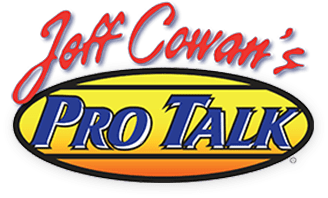The automotive service industry has undergone a dramatic transformation in recent years, and professional development has evolved alongside it. Online training workshops have emerged as a powerful alternative to traditional classroom instruction, offering service managers in dealerships and quick lube shops unprecedented flexibility and accessibility. As the automotive industry continues to evolve, traditional in-person training methods are being enhanced by more flexible and accessible online solutions, making it essential to understand the unique advantages that digital learning platforms provide.
Unparalleled Flexibility and Convenience
The most significant advantage of online training workshops is the flexibility they offer busy service managers. With the online automotive service manager training course, you can learn at your own pace and start your new career quicker, allowing professionals to balance their demanding work schedules with continuous learning and development.
Service managers can access training materials 24/7, fitting learning sessions around their operational responsibilities without disrupting daily service department operations. This flexibility is particularly valuable in the automotive industry, where service departments operate extended hours and managers must be available during peak customer service times.
Unlike traditional classroom settings that require specific time commitments, online workshops allow service managers to pause, rewind, and revisit complex concepts as needed. This self-paced approach ensures thorough understanding of critical management principles, customer service strategies, and operational techniques.
Cost-Effective Training Solutions
Online training workshops provide substantial cost savings compared to traditional in-person alternatives. Dealerships and quick lube operations can eliminate expenses related to travel, accommodation, venue rental, and time away from operations while still providing high-quality professional development opportunities.
Flexible, award-winning training online, at workshops, or at your dealership demonstrates how modern training providers offer multiple delivery methods to maximize cost-effectiveness and convenience for automotive businesses.
The scalability of online training means that multiple service managers can participate simultaneously without additional per-person venue costs, making professional development more accessible for organizations of all sizes.
Access to Expert Instructors and Industry Leaders
Online training platforms provide access to top-tier instructors and industry experts who might not be available for in-person sessions due to geographic limitations or scheduling conflicts. Seasoned trainers bring together more than 300 years of retail automotive expertise and knowledge, ensuring participants receive world-class instruction regardless of their location.
Service managers can learn from multiple experts throughout a single program, gaining diverse perspectives and proven strategies from various successful automotive professionals. This exposure to different approaches and philosophies enriches the learning experience beyond what might be possible in traditional classroom settings.
Interactive Learning Technology and Tools
Modern online training workshops utilize sophisticated learning management systems that provide interactive experiences rivaling traditional classroom instruction. Experience the next generation of online training and development. This interactive learning platform offers access to 150 self-guided, industry-leading training courses designed for all areas of the dealership.
These platforms incorporate multimedia presentations, interactive simulations, virtual role-playing scenarios, and real-time assessments that engage service managers actively in the learning process. Digital tools can simulate challenging customer interactions, financial management scenarios, and operational challenges that service managers face daily.
Online workshops often include features like discussion forums, peer collaboration tools, and digital whiteboards that facilitate interaction between participants and instructors, creating community learning experiences that extend beyond individual study sessions.
Measurable Learning Outcomes and Progress Tracking
Online training platforms provide detailed analytics and progress tracking capabilities that help both participants and their organizations measure learning effectiveness. We keep managers informed of training progress every step of the way, ensuring accountability and measurable outcomes.
Service managers can track their progress through modules, monitor quiz scores, and receive detailed feedback on areas requiring additional focus. This data-driven approach enables continuous improvement and helps identify specific skills that need reinforcement.
Organizations can monitor team-wide training progress, identify knowledge gaps, and measure the impact of training investments on key performance indicators like customer satisfaction scores and service department profitability.
Consistent Training Quality and Standardization
Online training workshops ensure consistent message delivery and standardized learning experiences across all participants. Unlike in-person sessions where instructor energy levels, external distractions, or venue limitations might affect quality, digital platforms maintain consistent high standards throughout the training experience.
Daily, online training program for Automotive Service Advisor professionals, powered by eAutotraining. We do all of the work! We deliver frequently updated, brief video assignments (Mon – Fri) to each enrolled student, demonstrating how online programs can provide structured, consistent learning experiences.
This standardization is particularly valuable for multi-location operations where consistent training across all service managers is essential for maintaining brand standards and operational excellence.
Immediate Application and On-the-Job Integration
Online training workshops allow service managers to immediately apply learned concepts in their work environment. Rather than waiting weeks or months for scheduled in-person training, managers can access relevant modules when facing specific challenges or implementing new processes.
This just-in-time learning approach means that training directly supports real-world problem-solving and skill development. Service managers can reference training materials while handling difficult customer situations, implementing new operational procedures, or coaching their teams.
Reduced Training Time and Operational Disruption
Online workshops minimize disruption to service department operations by eliminating the need for extended absences required by traditional training programs. Service managers can complete training modules during slower operational periods without compromising customer service quality or departmental productivity.
The modular nature of online training allows for micro-learning sessions that fit into busy schedules, making professional development more achievable for time-constrained service managers.
Enhanced Retention Through Multi-Modal Learning
Digital training platforms utilize various learning modalities including video instruction, interactive exercises, written materials, and audio components. This multi-modal approach caters to different learning preferences and enhances information retention compared to single-format instruction methods.
Service managers can choose learning formats that best suit their preferences, whether visual demonstrations, audio explanations, or hands-on simulations, leading to improved comprehension and longer-term retention of critical concepts.
Global Access to Best Practices
Online training workshops provide access to global best practices and cutting-edge industry developments that might not be available through local training providers. Service managers can learn from successful operations worldwide, gaining insights into innovative approaches and emerging trends.
This global perspective is particularly valuable in the rapidly evolving automotive industry, where new technologies, customer expectations, and operational methods are constantly developing.
Continuous Learning and Updates
We deliver frequently updated, brief video assignments (Mon – Fri) to each enrolled student, highlighting how online training platforms can provide ongoing learning opportunities that keep service managers current with industry developments.
Unlike one-time in-person workshops, online platforms can continuously update content to reflect changing industry conditions, new technologies, and evolving best practices, ensuring that service managers always have access to the most current information.
Conclusion: Embracing the Digital Training Revolution
Online training workshops represent a fundamental shift in how automotive service managers develop their skills and advance their careers. The combination of flexibility, cost-effectiveness, expert access, and measurable outcomes makes digital learning an increasingly attractive option for forward-thinking dealerships and quick lube operations.
The ultimate goal of any sales training program is to increase sales and profitability. Online automotive sales training equips your team with the tools and techniques to close more deals, upsell additional products or services, and maximize profit margins, demonstrating the direct business impact of quality online training programs.
While online training may not completely replace in-person instruction, it provides compelling advantages that make it an essential component of modern professional development strategies. Service managers who embrace online learning opportunities position themselves and their organizations for continued success in an increasingly competitive automotive marketplace.
The future of service manager training lies in leveraging the best aspects of both digital and traditional learning methods, creating comprehensive development programs that maximize flexibility, effectiveness, and return on investment.
Frequently Asked Questions (FAQs)
1. How does online training compare to in-person workshops for service managers?
Online training offers greater flexibility, cost-effectiveness, and accessibility, while in-person workshops provide face-to-face interaction and hands-on practice. The best approach often combines both methods, with online training providing foundational knowledge and in-person sessions offering practical application and networking opportunities.
2. Can service managers receive certifications through online training programs?
Yes, many online training platforms offer certification programs for automotive service managers. Plus, the certification program will help you stand out from the competition when it comes time to apply for service manager jobs. These certifications are often recognized by industry organizations and can enhance career advancement opportunities.
3. What technical requirements are needed for online training workshops?
Most online training platforms require basic computer skills, reliable internet connection, and standard web browsers. Some programs may require specific software or mobile apps, but most are designed to be accessible on various devices including computers, tablets, and smartphones for maximum flexibility.
4. How do online training programs ensure participant engagement and completion?
Online programs use interactive elements, progress tracking, regular assessments, and gamification to maintain engagement. We keep managers informed of training progress every step of the way, ensuring accountability through detailed monitoring and regular communication with participants and their supervisors.
5. What ROI can dealerships expect from online service manager training?
Online training typically delivers higher ROI than traditional methods due to lower costs, reduced operational disruption, and ability to train multiple managers simultaneously. By investing in the development of your sales team, you are directly contributing to the financial success of your dealership, with measurable improvements in customer satisfaction, service revenue, and operational efficiency.








 Based in the USA
Based in the USA